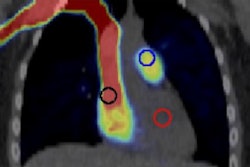
Electronic cigarettes (e-cigarettes) alter oral health and may contribute to gum disease, according to a study published in Bio on February 22. People who vaped e-cigarettes in the study had a less healthy oral microbiome than nonsmokers did -- but could still be healthier than cigarette smokers.
Researchers from New York University College of Dentistry studied 84 adults ages 30 and older across three groups: people who had never smoked, cigarette smokers, and e-cigarette users. The study demonstrated the long-term consequences of using e-cigarettes.
"To our knowledge, this is the first longitudinal study of oral health and e-cigarette use," stated lead author Deepak Saxena, PhD, a professor of molecular pathology, in a press release. "We are now beginning to understand how e-cigarettes and the chemicals they contain are changing the oral microbiome and disrupting the balance of bacteria."
Researchers have known about the oral and overall health consequences of traditional cigarettes for decades, but little is known about how e-cigarettes affect gum health. The authors conducted the study in the hope of learning more.
Using plaque samples from dental exams, they analyzed the bacteria present to assess gum diseases. Samples were taken six months apart to allow more time for disease progression. In total, 168 samples from 84 subjects were analyzed in the final study.
All participants had some gum disease at the start of the study. After six months, gum disease had worsened for some participants in each smoking status group.
E-cigarette users had a different oral microbiome than traditional cigarette smokers and nonsmokers, and their distinct microbiome had a strong correlation with some measures of gum disease. Both Fusobacterium and Bacteroidales, which are linked to gum disease, were more dominant in the mouths of e-cigarette users than the other two groups.
The bacterial composition for e-cigarette users was also much more similar to that of cigarette smokers than nonsmokers. E-cigarette and traditional cigarette users had higher levels of Selenomas, Leptotrichia, and Saccharibacteria than nonsmokers.
"Vaping appears to be driving unique patterns in bacteria and influencing the growth of some bacteria in a manner akin to cigarette smoking, but with its own profile and risks to oral health," stated Fangxi Xu, a junior research scientist in Saxena's lab and the study's co-first author.
More so, the use of e-cigarettes was tied to changes in the immune environment. People who vaped e-cigarettes had different levels of immune regulating cytokines.
In particular, e-cigarette users had higher levels of tumor necrosis factor-alpha (TNF-alpha), a cytokine related to inflammation, and lower levels of interleukin-4 (IL-4) and IL-1-beta, cytokines that tend to be reduced in people with untreated gum diseases. The findings suggest the oral bacteria in e-cigarette users may be actively suppressing the immune system, the authors noted.
The authors did not discuss limitations or next steps; however, they pointed to the lack of research on vaping's long-term effects on gum health, something they hoped future studies could look into.
"Unlike smoking, which has been studied extensively for decades, we know little about the health consequences of e-cigarette use and are just starting to understand how the unique microbiome promoted by vaping impacts oral health and disease," stated co-first author Scott Thomas, an assistant research scientist in Saxena's lab.



















